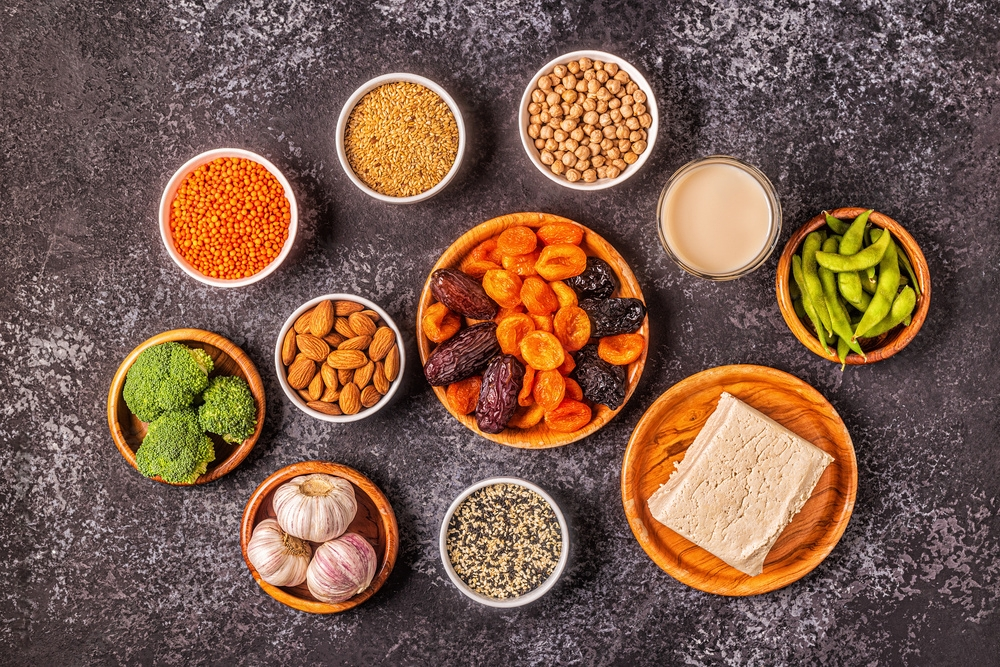
Going through menopause can be a challenging time for many women. The shifts in hormones often bring unpleasant symptoms such as hot flushes, night sweats, and mood swings. While hormone therapy is an option for some, many women prefer first to try making adjustments to their lifestyle – with one of the most critical being the food they eat.
The proper diet can’t eliminate troublesome menopause symptoms entirely, but nourishing your body with the nutrients it needs while avoiding potential triggers can help you feel more balanced and ease discomfort. Read on for tips on the best and worst foods to reclaim your well-being through your daily meals.
Supporting Your Body Through Menopausal Changes
As hormone changes lead to hot flushes and night sweats, lifestyle habits also play a role. Factors including excess weight, alcohol intake, smoking and diet can worsen or improve troublesome symptoms. For example, foods rich in phytoestrogens may help minimise hot flushes. Meanwhile, triggering items like spicy foods, hot drinks, or very sugary treats tell your body to kick into cooling mode, which revs up your sweat glands.
While research on specific diets for menopause is limited, studies do show that a predominantly plant-based, high-fibre diet is best for minimising menopausal discomfort. Let’s look at what to eat more of and what to limit for maximum well-being during this hormonal transition.
Avoiding Common Menopause Triggers
Foods linked to bothersome hot flushes, night sweats, and mood issues during menopause include:
Caffeine
Caffeine triggers hot flushes by increasing your heart rate and metabolism; found in coffee, black and green tea, soda, chocolate, and some pain relief medications. Try switching to decaf or limiting caffeine to 1 small cup each morning.
Spicy foods
Chilli peppers and hot sauces can cause flushing and sweating. Thus, avoiding very spicy dishes can be a step to prevent hot flushes.
Alcohol
Red wine and spirits also provoke hot flushes. Limit your alcohol intake to one drink daily, or switch to non-alcoholic alternatives and always accompany with food.
Very sugary foods:
The blood sugar spikes and crashes brought on by sweets, sugary cereal, and pastries put your hormones on a rollercoaster. Opt for complex carbs and always pair sweets with protein or fat.
Trans fats
Found in many microwave popcorn bags, biscuits, crackers, and fried fast foods, these processed fats promote inflammation in the body – which can worsen hot flushes. Check labels and avoid anything with “partially hydrogenated oil.”
Nourishing Foods to Ease Discomfort
Now, let’s talk about what you should eat more to keep symptoms at bay. The key is focusing your diet on primarily plant-based foods high in phytoestrogens, magnesium, Vitamin E, and fibre, which contain a high water content to nourish your body with cooling, stabilising nutrients. Here are the top menopause-friendly foods to incorporate:
Phytoestrogen-rich foods:
- Soy products like tofu, tempeh, edamame, and miso paste contain isoflavones that mimic oestrogen. Enjoy 1-2 servings of soy per day.
- Lentils, chickpeas, peanuts, pistachios, and cashews have plant oestrogens that balance hormones.
- Flax, sesame and pumpkin seeds: Sprinkle on yoghurt, salads or blend into smoothies. Their lignans ease hot flushes.
- Dried fruits like apricots and prunes and fresh options like pears, apples, cherries, oranges provide boron. This mineral assists your body in adequately utilising estrogen.
Magnesium-rich foods
This mineral aids hormone balance and sleep. You can find it in spinach, Swiss chard, pumpkin seeds, almonds, cashews, tofu, edamame, lentils, oatmeal, and brown rice.
Vitamin E-rich foods
Sunflower seeds, almonds, spinach, broccoli, kiwi, and mangos contain vitamin E, improving blood flow and temperature regulation.
High-fibre foods
Whole grains like oats, brown rice, farro, quinoa and bran are all high in fibre. Also, beans, lentils, nuts, seeds, fruits, and veggies supply fibre to stabilise blood sugar and hormone levels.
Additionally, foods with high water content – like watermelon, cucumber, strawberries, grapefruit, lettuce and celery – help hydrate the body and avoid overheating.
Fresh herbs like sage, ginseng, and evening primrose contain soothing compounds, making it beneficial to try adding them to your dishes.
Let Us Guide Your Through This Transition
If you’re struggling with hot flushes, night sweats, and other menopause discomfort, support is available.
Our professionals at the Australian Menopause Centre offer personalised treatment plans to help you navigate menopause confidently and comfortably. Click below to schedule a consultation and get customised diet and lifestyle solutions for your unique needs:
Healthy Meal Ideas
Let’s get to some delicious, nutritious meals perfectly designed for menopause relief! Try some of these ideas throughout your day:
Breakfast Smoothie: Blend cherries, banana, spinach leaves, flaxseed, cinnamon, and almond milk. Top with sunflower seeds.
Overnight Oats: Mix oats, soy milk, chopped apple, and cinnamon. Refrigerate overnight and top with blueberries before eating.
Tofu veggie scramble: Sautee tofu cubes, spinach and mushrooms. Add turmeric and freshly ground black pepper. Serve in a whole-grain wrap with salsa.
Lunch salad: Spinach leaves, chickpeas, avocado, beets, walnuts and balsamic dressing
Afternoon snack: Hummus with snap peas and mini pepper slices with pistachios on the side.
Dinner: Lentil and pumpkin coconut curry over brown rice. Serve with non-caffeinated ginger or mint tea.
Dessert: Greek yoghurt topped with sliced strawberries, almond slivers and drizzled honey.
You’ll notice both the ingredient choices and the meal times here promote steady energy and hydration during daytime hours, with lighter fare as the day progresses to avoid discomfort in the evening.
Wellness Awaits!
We hope these diet tips and healthy recipes give you a helpful head start on minimising menopause symptoms that can take such a toll on your days. Remember to focus on plant foods packed with cooling phytoestrogens, magnesium and vitamin E. Most importantly, eat frequent small meals so your blood sugar, energy levels and temperature run regulated.
You’ve got this! Here’s to the next exciting chapter of womanhood.
If you are looking for assistance or have any questions, simply call us on 1300 883 405, or request a call back for menopause consultations.